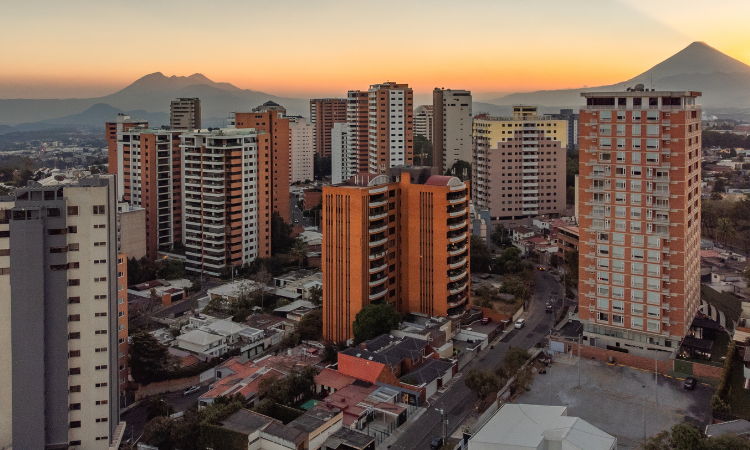Two initiatives to promote industry, manufacturing, and intraregional commerce have recently surfaced in the US Congress. Whatever one thinks of industrial policy, these initiatives clearly reflect a growing awareness of the importance of Latin America, especially Central America, for US geopolitical strategic interests. One country, in particular, stands ready to benefit from both bills. That country is Guatemala.
The initiative in the House is the Nearshoring Act, proposed by Tennessee Republican Mark Green. From the Senate comes the Americas Act, proposed by Louisiana Republican Bill Cassidy. Both bills prioritize the intent to return industry and manufacturing to the United States and, in lieu of that, to nearby countries. The bills contemplate preferential treatment on trade, taxes, credit, and a host of other privileges meant to incentivize the movement of critical supply chains closer to home.
The Rivalry That Compels This Response
The motivations behind both bills are strategic, arising from the geopolitical rivalry between the United States and China. The former depends on her principal geopolitical rival for her supply of critical goods. This is something that never happened during the Cold War with the Soviet Union, whose exports and imports combined only represented a scant 4–5 percent of its GDP. With China, the figure is closer to 40 percent of a GDP that is already the second largest in the world.
Machinery and electrical goods, metals, textiles, and plastics/rubbers are just some of the top exports from China to the United States. On a global scale, China controls 63 percent of the world’s rare-earth mining, 85 percent of its processing, and 92 percent of rare-earth magnet production. These are critical components in modern weaponry and essential for high-tech industries. The United States promoted free markets and trade during the Cold War but did not outsource her defense industries or critical supply chains.
The Cassidy and Green initiatives seek a return to these basic practices of geopolitical strategy, even if they defy free markets and economic efficiency. While using the jargon and terminology of free trade, both initiatives are motivated by the dual political aims of (1) reducing US economic dependence on China and (2) blunting China’s growing presence in the Americas.
On pace to becoming the world’s largest economy, China aspires to displace the United States as the world’s hegemonic power. Surrounded by US military bases close to her shores, China aspires to a military presence close to US shores. Were that to happen, it would forever be a game-changer for US strategic security interests. Under the woke foreign policy that has captured the State Department, the United States could not legitimately protest against China doing what the United States does on a regular basis. Realpolitik trumps wokepolitik.
The logical place for China to locate a strong presence in Central America would be Guatemala, due to her proximity to the United States and dual ocean access. So far, such a proposal has been a nonstarter in Guatemala. She has traditionally been a loyal US ally, as evidenced by her unwavering support of Taiwan and Israel. Likewise, the Guatemalan army defeated communist insurgents, even though the United States cut off military assistance at the most crucial time.
This support of US foreign policy has been in large part due to the political preferences of the private sector in Guatemala. However, domestic politics can and often do change, especially when foreign powers meddle in the domestic politics of developing countries.
The case becomes clear for the Cassidy and Green initiatives in Congress. They are meant to accomplish the two-fold purpose of blunting US economic dependence on China and blunting China’s growing influence in the region. Some of the prerequisites for qualifying for the benefits under these initiatives are:
- not having an authoritarian government;
- having taken concrete steps to deter illegal immigration and human trafficking;
- having taken concrete steps in the War on Drugs;
- recognition of Taiwan.
Guatemala Is Indispensable for US Interests
Guatemala qualifies on all counts, under both the Cassidy and Green initiatives.
A loyal US ally in international affairs, Guatemala is the largest country in Central America in terms of GDP and population. Guatemala is also the largest country in the world, in both these terms, that still recognizes Taiwan. Guatemala has sea access on the Atlantic and Pacific coasts, and her border with Mexico is much smaller and easier to control than the US-Mexico border.
On a more practical level, Guatemala has the industrial capacity that many of her neighbors do not have. The Caribbean islands do not have the industrial capacity nor the economies of scale to optimize nearshoring opportunities. Eleven Caribbean countries together barely represent half of Guatemala’s industrial capacity, which is only surpassed by the Dominican Republic. However, that country notably does not have Pacific Ocean access.
The time has come for the United States to recognize the importance of Guatemala for US security interests. Similarly, the United States should pay homage to the unreciprocated yet steadfast loyalty of the Guatemalan government to US foreign policy interests.
In times of great power rivalry, small countries can benefit. If any country should benefit from the United States doling out favors in the region, Guatemala should be first.
 Join us in our mission to foster positive relations between the United States and Latin America through independent journalism.
Join us in our mission to foster positive relations between the United States and Latin America through independent journalism.
As we improve our quality and deepen our coverage, we wish to make the Impunity Observer financially sustainable and reader-oriented. In return, we ask that you show your support in the form of subscriptions.
Non-subscribers can read up to six articles per month. Subscribe here.

